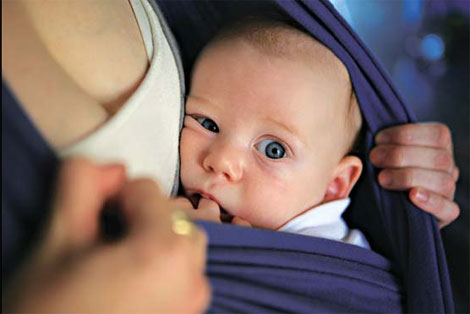Society
Where being fruitful is funded by the state
Updated: 2011-07-31 08:28
By Dina Kraft (The New York Times)
|
In Israel, women can have free in vitro treatments for up to two babies. Eitan Letai-Sever was born after his mother underwent eight treatments. Rina Castelnuovo for The New York Times |
TEL AVIV, Israel - Jewish and Arab, straight and gay, secular and religious, the patients who come to Assuta Hospital in Tel Aviv every day are united by a single hope: that medical science will bring them a baby.
Israel is the world capital of in vitro fertilization and the hospital, which performs about 7,000 of the procedures each year, is one of the busiest fertilization clinics in the world.
Unlike countries where couples can go broke trying to conceive, Israel provides free, unlimited IVF procedures for up to two "take-home babies" until a woman is 45.
Although the procedures account for one of the country's largest public health expenditures, the policy is one of the few issues nearly all sectors of Israeli society seem to agree upon. There is even a growing pool of single women using in vitro fertilization, their efforts sanctioned by rabbis.
"The unique thing about Israel is that it's a high-tech culture on the one hand and a very traditional one on the other," said Sigal Gooldin, a Hebrew University medical sociologist. "Anyone who lives here is expected to have children."
Israelis already have a high fertility rate: an average of 2.9 children per family. Beyond the biblical imperative to be fruitful, some Israeli Jews remain concerned with replenishing their numbers in the wake of the Holocaust.
Demographics here are also political. Israel has historically focused on promoting Jewish birthrates to retain a Jewish majority and more recently as a counterweight to higher fertility rates of Palestinians in the occupied territories. Arab citizens of Israel, however, have the same rights to state-paid fertility treatments.
A survey published by the journal Human Reproduction Update in 2002 showed that 1,657 in vitro fertilization procedures per million people per year were performed in Israel, compared with 899 in Iceland, the country with the second highest rate, and 126 in the United States, which trailed far behind European countries.
A major center of the baby-making industry is Assuta, which performs about a quarter of Israel's approximately 28,000 IVF procedures a year. At the fertility center there, a lab housing 60,000 frozen embryos sits between an operating room where women have their eggs aspirated and a transfer room where the embryos are implanted in the patient.
Citing the countless prayers that have been sent up from within its sterile white walls, Shai Elizur, the in vitro fertilization director at Assuta, calls the transfer room "a holy room."

The booming industry has also provided advantages to Israeli physicians. The large pool of patients with diverse fertility problems has helped them tailor treatments that end with a successful pregnancy, they say. And because cost is not an issue, there is less pressure to implant multiple embryos, which can lead to larger than desired multiple births.
The Health Ministry says it spends about $3,450 per treatment, although some critics say the real cost may be higher.
Mira Huebner-Harel, the Health Ministry's legal adviser, said a state committee was considering whether to open coverage of fertility treatments to gay men using a surrogate.
Still, the policy is not entirely without its critics. Hedva Eyal, who works for Isha L'Isha, an Israeli feminist organization, says there should be more discussion of the potential emotional and physical toll of the treatment, which includes a battery of hormone shots.
Vered Letai-Sever, 32, a patient of Dr. Elizur's, has had eight in vitro fertilization treatments. The last led to the birth of her son Eitan four and a half months ago.
"If we lived anywhere else we probably would never have gotten here," she said as she held the infant.
"There is something deeply humane about this policy, this idea that people have the right to be parents," she said. "It's something that characterizes life here: the value placed on life."
The New York Times
E-paper

Double vision
Prosperous Hangzhou banks on creative energies to bridge traditional and modern sectors
Minding matters
A touch of glass
No longer going by the book
Specials

Carrier set for maiden voyage
China is refitting an obsolete aircraft carrier bought from Ukraine for research and training purposes.

Pulling heart strings
The 5,000-year-old guqin holds a special place for both european and Chinese music lovers

Fit to a tea
Sixth-generation member of tea family brews up new ideas to modernize a time-honored business

